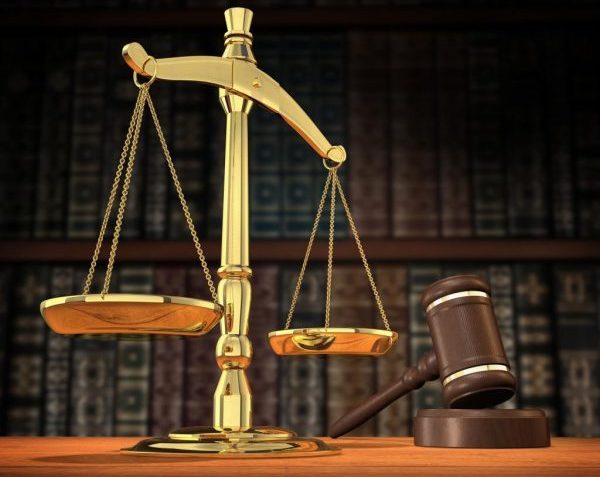Leaders of pan-Yoruba groups representing artisans, workers, students, community-based groups, traders, professionals and self-determination groups have jointly expressed their opposition against the move to introduce Sharia Law in Yorubaland.
The Yoruba groups raised the alarm over what they described as a conscious plot to destabilise Yorubaland through an organised sponsorship of divisive and retrogressive proposals that would ultimately cause unrest in the South-West.
This was disclosed in a statement jointly signed by the leaders of 29 pan-Yoruba groups which included Alliance for Yoruba Democratic Movements, O’odua Nationalist Coalition, South West Professional Forum, and Federation for Yoruba Consciousness and Culture, made available to Sunday PUNCH.
Expressing their respect for Islam, which the leaders of the groups noted had promoted education, health and welfare in Yorubaland since the 14th century, they however expressed plan to oppose the imposition of Sharia by a religious fringe on the multi-religious region.
The statement partly read, “We recognise the right to debate the future of the children of Oduduwa and the right to free speech as exemplified in the constitution of Nigeria and in the timeless culture of Yorubaland; free expression, including the right to faith, has been an integral part of Yoruba civilisation, dating back to close to 2,000 years, a cherished heritage that we have defended and will continue to defend with every pint of our blood.
“We have observed the current proposal, by a tiny group of people, backed by largely non-Yoruba domestic and international collaborators pushing for the introduction of Sharia in Yorubaland.
“We state clearly that the introduction of Sharia cannot improve the economic, political, social and cultural deficit in Yorubaland. Yorubaland though seen as the most economically developed territory in West Africa, attained this feat not through theocracy but by the hard work, commitment, and determination of our forefathers who were both Muslims, Christians and Traditional worshippers.”
The Yoruba leaders further stated, “We, the true representatives of Yoruba people hereby strongly oppose the introduction of Sharia in any part of Oduduwaland of Lagos, Ogun, Oyo, Osun, Ekiti, Delta, Kogi, Edo, Kwara and Ondo States.
“Sharia is not feasible and can never be acceptable to a multi-religious, muti-faith people like the Yoruba; Sharia is only applicable in societies where Islam is the state religion or majority of the people profess Islam.”
The leaders accused the proponents of Sharia in the South West of a plan “to destabilise the South West and uproot the very foundation of democracy” and attributed this to political intrigue “sponsored by vested interests, aimed at polarising the political and electoral fortunes of Yoruba nation.”
Tensions over the introduction of Sharia Law in the South-West began in December 2024 when a flier from the Supreme Council for Shari’ah in Nigeria went viral online.
The flier announced the planned inauguration of a Sharia court in Oyo State, scheduled for January 11, 2025.
The announcement sparked backlash from Yoruba groups and online users, leading the Oyo State chapter of the Islamic council to indefinitely postpone the inauguration.
In a subsequent press statement, the chairman of the committee set up by the Islamic group, Dr Bello Adisa, clarified that the proposed arbitration panel—similar to those already operating in other parts of the South-West—was intended solely for resolving family disputes among consenting Muslims.
“It is not a court. We deeply regret any inconvenience caused by this misrepresentation and the subsequent postponement,” Adisa said.
Meanwhile, the Ewi of Ado Ekiti, Oba Adeyemo Adejugbe, on Saturday, ordered the dissolution of the Sharia panel set up at the Central Mosque, Ado Ekiti in the interest of peaceful coexistence and law and order in the committee.
The monarch spoke in Ado Ekiti during a meeting he held with the chiefs and indigenes of the community and the Chief Imam and President of the League of Imams and Alfas in the Southwest, Edo and Delta states, Sheik Jamiu Kewulere; and other Muslim leaders in Ado Ekiti.
Oba Adejugbe said, “Based on this sharia issue, I summoned the Chief Imam and his lieutenants, members of the Ewi-in-Council, the president of Ado Progressives Union and Ado sons and daughters to discuss the matter because it is a sensitive issue.
“We all listened and it appears they set up a committee at the Central Mosque intending to listen to disputes. According to them, they have good intentions and it was an internal arrangement that has nothing to do with any external person or somebody influencing them.
“I told them the mood of the nation will not allow such to happen now, that they should revert to how the founding fathers of the mosque had been settling disputes in the past without setting up a committee.
“I told them that there is no need for the committee and they should dissolve the committee henceforth. That is the decision of the Ewi-in-Council and that is the position of all Ado sons and daughters. The panel stands dissolved.
“If we should allow such committee, the Christians too will want to set up committees in their various churches, the traditional worshippers too and before you know it, it will lead to crises.”
Speaking earlier, the Chief Imam, Kewulere, who confirmed setting up the committee, which he said had resolved a marriage dispute and adjourned on a second matter, dismissed all insinuations that it was set up for sinister motives.
Kewulere, who said that Muslims and adherents of other religions had been enjoying cordial relationships, said, “Basically, the committee is to look into matters of inheritance in the interest of our members.”
This came barely two days after the state government said that the existing legal structure in the state did not recognise the Sharia Court or Sharia Arbitration Panel.
The state Commissioner for Justice Attorney-General, Dayo Apata (SAN) spoke in reaction to news reports last week which stipulated the first public sitting of a Shari’ah panel in the state which resolved two marriage disputes.
